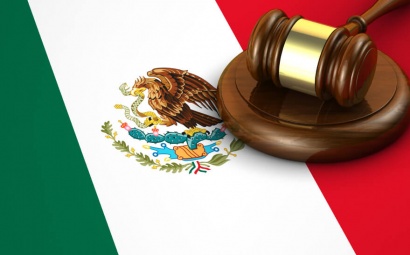 In the history of Mexican politics, the so-called Estrada Doctrine constitutes a milestone and, in turn, is a benchmark for international law.
In the history of Mexican politics, the so-called Estrada Doctrine constitutes a milestone and, in turn, is a benchmark for international law.
The historical context
In 1913 Mexico was in the middle of the revolutionary process and the seizure of power depended to a great extent on the possible political support of the United States, a country that is not only the natural neighbor but also was already presented at that time as the most powerful country on the planet.
In the revolutionary context, the president and vice president of the nation were arrested and finally committed suicide due to pressure from the United States. Faced with this circumstance, it was necessary to adopt a measure to protect national sovereignty, as there was fear of interference from the northern neighbor in internal politics.
In 1917 Mexico had a new constitution and is in the middle of the post-revolutionary stage, but there was still a period of political effervescence. In this situation, it was imperative that the nation obtain clear international recognition and seamless political independence.
The Estrada Doctrine is based on the principle of non-intervention and respect for the national sovereignty of the peoples
In 1930 Gerardo Estrada, secretary of foreign relations, presented the declaration of doctrine that bears his name. Its fundamental contribution is the following: no government requires the recognition of other nations to assume its own sovereignty. This approach supposes an explicit rejection of any form of foreign intervention in the affairs of the government of a nation.
Most historians agree that this doctrine is based on the rejection of the international policy of the United States, which had already promoted the non-recognition of some foreign governments, especially those that had arisen from revolutionary processes or military coups.
The Estrada Doctrine emerged in response to two views on foreign policy: the Tobar Doctrine and the Monroe Doctrine.
 According to the first, the nations of the American continent have to refuse to recognize any government that emerged from a revolutionary process and, therefore, the Tobar Doctrine defends a position of indirect interventionism. The Monroe Doctrine promotes the non-intervention of European nations in the American continent and, on the other hand, strengthens a privileged position of the United States over the rest of the American nations.
According to the first, the nations of the American continent have to refuse to recognize any government that emerged from a revolutionary process and, therefore, the Tobar Doctrine defends a position of indirect interventionism. The Monroe Doctrine promotes the non-intervention of European nations in the American continent and, on the other hand, strengthens a privileged position of the United States over the rest of the American nations.
The Estrada Doctrine opposes both and with it a respectful attitude is promoted with respect to the internal affairs of Mexico and of any other nation.
Photos: Fotolia - Harvepino / Joy









